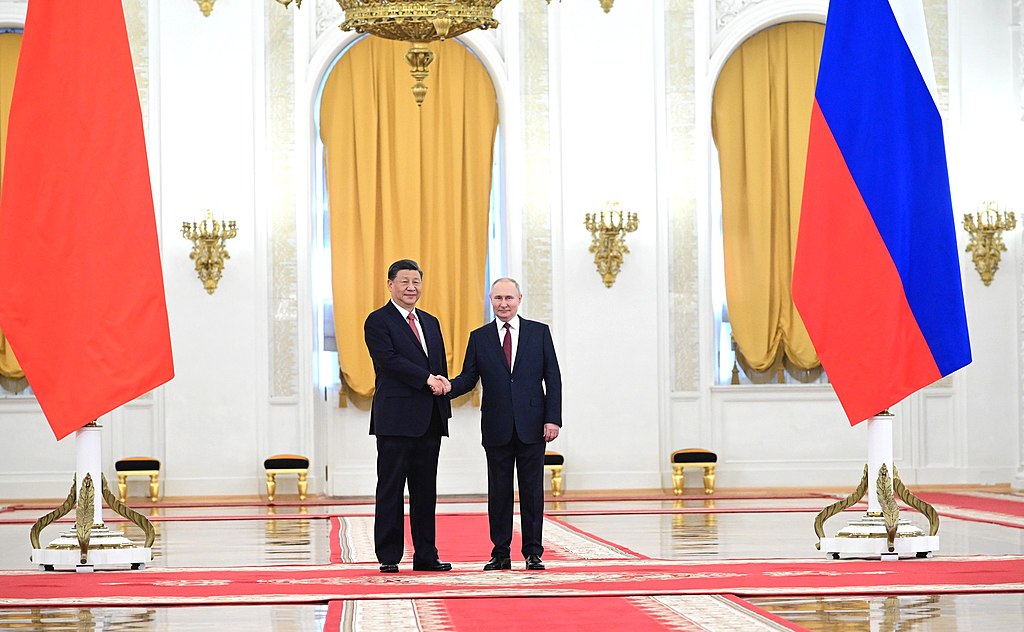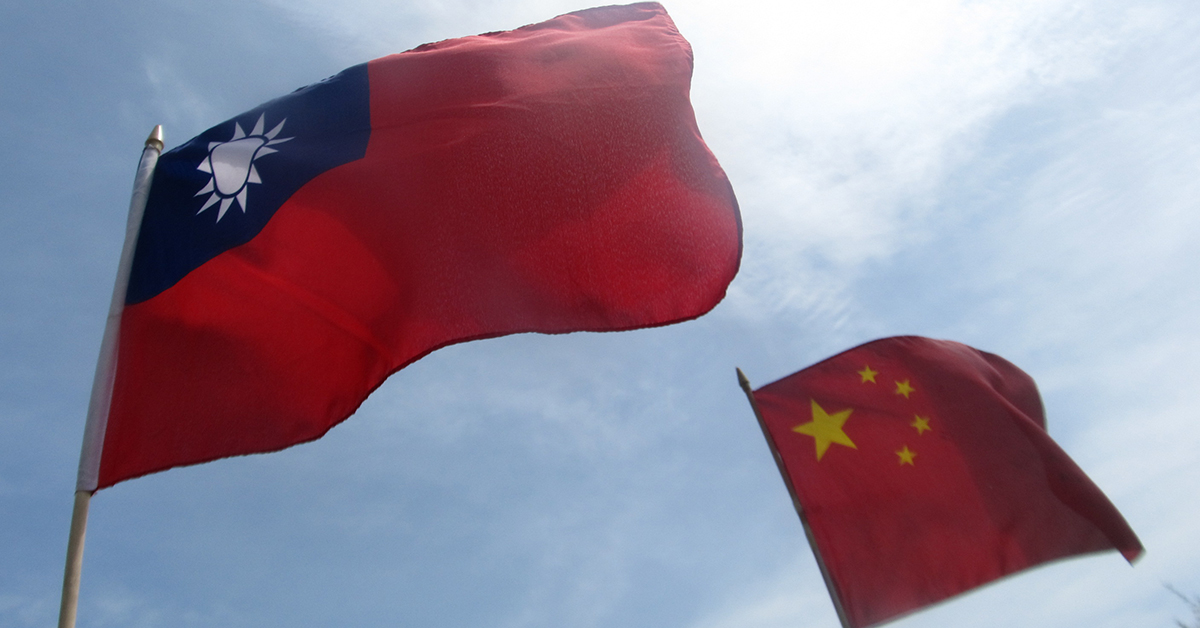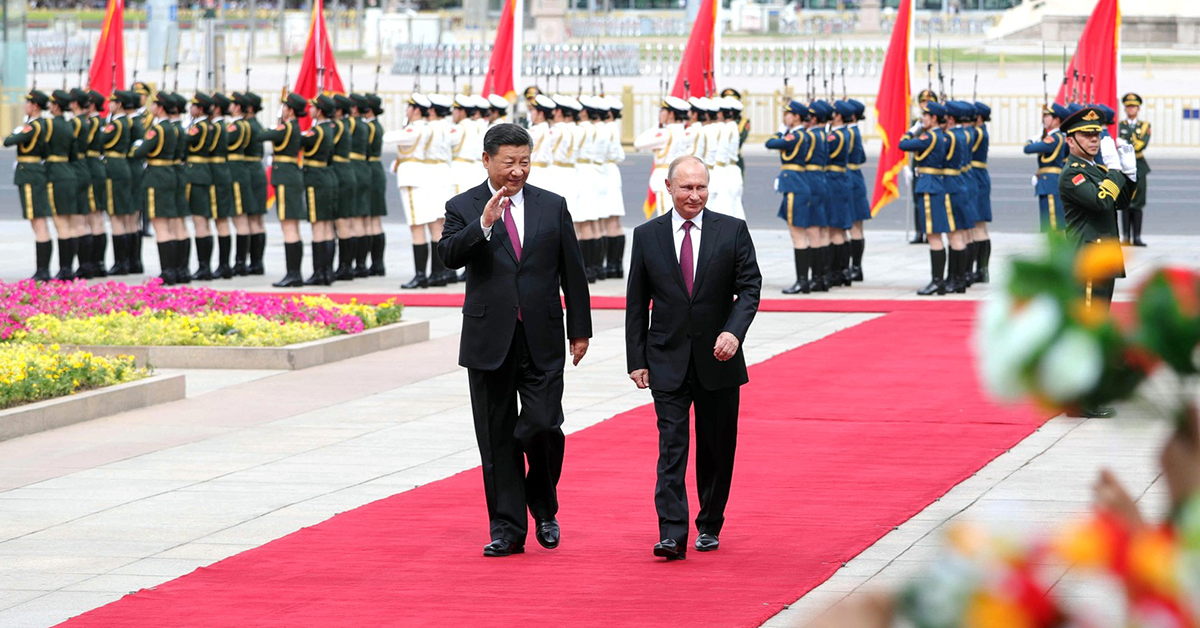This article is the second post on China’s stance on Ukraine. For the first text in this series, click here.
The content and tone of the Chinese proposal for the settlement of the war in Ukraine is one of pro-Russia “neutrality”.
China has interests in bringing the war to an end and in presenting itself on the world stage as a peace broker, a mitigator of the wider global fall-out of the war and a post-conflict reconstructor.
There are opportunities to strengthen communication and dialogue between Western countries and China on a long-term resolution of the war in Ukraine, how to mitigate the risk of increasing food insecurity, and how best to cooperate on post-conflict recovery and reconstruction.
China’s pro-Russia “neutrality”
In February this year, China embarked on a diplomatic offensive, including the release of official documents and a tour of Europe by its top diplomat, Wang Yi. The Chinese foreign Ministry published three documents outlining China’s role in global peace and security: The Global Security Initiative concept paper, China’s Position on the Political Settlement of the Ukraine Crisis and a report on US Hegemony and its Perils. It is not a coincidence that these documents were published within just a few days of each other. They all contribute to the same vision where Beijing seeks a greater role in global security affairs, and peace becomes a key feature in the official rhetoric.
Published on the first-year anniversary of the invasion of Ukraine, China’s Position Paper on Ukraine sets out in twelve points China’s position vis-à-vis what is described as a “question, problem” (问题). It starts by reiterating one of the pillars of Chinese foreign policy, the need to respect the sovereignty, independence and territorial integrity of all countries, an unobjectionable principle rooted in the “democratisation of international relations”. At the same time, China emphasises the need for “an identical and uniform application of international law” and the rejection of the use of double standards, an indirect critique of the US. The second point draws from the principle of indivisible security. It urges all parties to “help forge a balanced, effective and sustainable European security architecture” and abandon “the Cold War mentality” that relies on the expansion of military blocs. Implicitly, China castigates the United States and the NATO alliance, which China — like Russia — blames for provoking the war.
The most interesting part of the document is China’s establishing itself as a mediator in the war, advising on how to achieve peace. It recommends a ceasefire, peace talks, and an end to sanctions against Russia. The paper also advocates for humanitarian measures and civilian and prisoner-of-war protection; nuclear safety and opposition to weapons of mass destruction; food security measures; stabilisation of supply chains, and consideration for post-conflict reconstruction.
The content and tone of the Chinese proposal is one of pro-Russia neutrality. China refuses to condemn the war of invasion, or even define the conflict as a war, using instead the word “crisis” (危机). Moreover, the neutral political language used throughout the document, especially regarding the “cessation of hostilities”, demanding “all parties must stay rational and exercise restraint”, implies equality between Russia and Ukraine. This neglects the fact that one is the aggressor and the other the attacked, and that one has violated the basic principles of international law and the norms of the UN Charter, which the Global Security Initiative lists among the “fundamental concepts and principles” of a potential new Chinese order.
The proposal does not call on Russia to withdraw from occupied territories in the five Ukrainian provinces it fully or partly controls, instead recommending an immediate ceasefire. This would force Ukraine to persuade Russia to voluntarily return land conquered by force, an unrealistic scenario. The proposal also calls for stopping sanctions against Russia. China’s essential argument is that sanctions ultimately damage all parties and undermine global economic stability.
What drives the Chinese proposal?
The Chinese proposal reflects the complex interests and motivations of China.
China has an interest in the war’s end, ideally on Russian terms. For China, the global economic outlook continues to be affected negatively by the war, new security challenges have emerged, Sino-European relations have deteriorated, the Belt and Road Initiative (BRI) project in Europe has come to a standstill, the expanding NATO alliance has been reenergized, and there is the prospect of a Russian defeat, with destabilising impacts inside Russia and its “near-abroad”. The June 2023 rebellion by the Wagner group highlighted concerns that a protracted war in Ukraine threatens regime stability in Russia. While Chinese official statements and the media downplayed the impact of the mutiny, Chinese leaders are concerned about the future of Putin’s government.
China is also keen on presenting itself on the world stage as a peace broker, with a blueprint that many countries can support; strengthening, in the process, its geopolitical influence. China is aware that numerous countries in the Global South, including some big players like Brazil, India, Indonesia, and South Africa, have not condemned Russia’s invasion of Ukraine. They have abstained from UN General Assembly resolutions denouncing Russia’s invasion and have called instead for a negotiated end to the war. These countries have a primary economic interest in peace talks that might reduce pressure on food and fuel prices. While China’s stance on the war has been met with skepticism in the West, China is aware that its proposal appeals to many countries in the South, whose support in the context of increased China-US rivalry is important to Beijing.
China’s proposal also serves Beijing’s efforts to improve relations with Europe, which have deteriorated, partly because of the war in Ukraine. China is aware that several European countries, especially in Central and Eastern Europe, have reassessed their relations with China through the lens of the Moscow-Beijing axis. Last February, in a bid to improve relations with a skeptical Europe, Wang Yi visited France, Germany, Italy, and Hungary. At the Munich Security Conference, he emphasized that “China and the EU are partners, not rivals”; China is ready to work with the EU towards a political settlement of the conflict in Ukraine. While for China the ultimate goal of the US is to maintain its global hegemony and to constrain China’s rise, China believes that with Europe “the ball is still in play”. It wants to preserve its economic relationship with Europe and, where possible, deepen Sino-European cooperation on other issues.
Finally, China’s peace proposal allows Beijing to position itself in the reconstruction of postwar Ukraine, and potentially relaunch the BRI project in Europe. The twelfth point of China’s position paper on Ukraine calls on the international community “to take measures to support post-conflict reconstruction”, emphasizing China’s willingness to “play a role”. For China, contributing to Ukraine’s reconstruction would strengthen China’s overall engagement with Europe and could potentially give a boost to its BRI, particularly along the Northern Corridor that has been seriously undermined by Putin’s war.
Implications for peace, food security and post-conflict reconstruction
At any rate, China’s position paper on Ukraine has potentially important implications for peace, global food security and post-conflict reconstruction.
It has created the opportunity to strengthen communication and dialogue between Western countries and China regarding a long-term resolution of the conflict. Given its economic and geopolitical ties with Russia, China will realistically not be lured away from its Russian strategic partner. While Ukraine demands the full restoration of its territorial integrity and a complete withdrawal of Russian troops for peace talks, China is unlikely to ask Russia to act accordingly. A more realistic expectation is that while China continues to support Russia rhetorically and diplomatically, it does not cross the ‘red line’ of supplying arms to Russia. However, China’s involvement in a long-term settlement of the conflict in Ukraine is highly probable, particularly if there is a mechanism that creates an international framework for negotiations and commitments by Russia, Ukraine and relevant third parties, such as a UN Security Council resolution. A permanent member of the UN Security Council with close ties to Russia, China will be involved in efforts, including consultations, roadmaps for peaceful settlement, key negotiations, and the necessary security assurances and post-conflict reconstruction pledges. This may lead to a geopolitical agreement that would result in a new security order in Europe. Such an agreement may be years away, yet forward-looking diplomacy requires preparing for such an eventuality. In addition to contributing to an international environment conducive to conflict resolution and the emergence of a final geopolitical agreement, dialogue with China should also help address design and content options for such an agreement. There are opportunities to engage with China at diplomatic, political and civil society levels on what a just and durable peace may look like. These include bilateral government consultations, visits to China by European political leaders, EU-China exchanges and discussions with Chinese think tanks and scholars. The main challenge is to devise messaging to China when Western opinions diverge on how to pursue a just and durable peace; Beijing is aware of this.
The Chinese proposal also gives greater impetus to cooperative efforts to tackle food insecurity. The combined impacts of the war in Ukraine, the climate crisis and the COVID-19 pandemic have strained global food supply. Russia’s recent decision not to extend the Black Sea grain export deal is expected to imperil millions of tonnes of food exports around the world, further aggravating the global food crisis. China is a powerful player in the global food system, and therefore seeking their cooperation in overcoming strained global resources and food insecurity is a key priority. China’s Position Paper on Ukraine calls for the implementation of the Black Sea Grain Initiative and highlights that the Cooperative Initiative On Global Food Security proposed by China in July 2022 “provides a feasible solution on the global food crisis”. There is enough common ground to enhance dialogue and cooperation with China to collectively define and prioritise food security issues. Currently, the most urgent action is restoring grain supply through the Black Sea routes. China, the biggest recipient of Ukrainian grain under the Black Sea grain deal, could use its leverage to convince Russia to renew the Black Sea Grain Initiative.
Finally, there are implications for post-conflict recovery and reconstruction in Ukraine. A February 2023 joint assessment by Ukraine, the World Bank, the European Commission, and the UN estimated that costs will amount to $411 billion – this is likely to rise. The US, the EU and various European states will be involved in Ukraine’s post-war recovery, but with their economies slowing, they will be unable to bear the costs alone. China, despite its own slowing economy, has the means and the expertise to assist in rebuilding Ukraine. Over the past three decades, it has built more infrastructure around the world than any other country. While geopolitical competition is an undeniable reality, a shared common interest in rebuilding Ukraine, China’s propensity to talk about physical and economic reconstruction and the similarities of major infrastructure-based connectivity initiatives, such as China’s BRI and the G7’s Partnership for Global Infrastructure and Investment (PGII) offer hope for potential collaboration. Despite their competition, both Chinese and Western actors aiding post-conflict reconstruction in Ukraine will find themselves engaging in the same context, where they will encounter common challenges, including the safety of their investments and of their own citizens. They will share interests and concerns to operate in a stable and peaceful environment and could learn from one another’s comparative challenges and advantages. From a security perspective, China’s involvement in post-conflict reconstruction could be a form of guarantee against possible future Russian aggression. Given Russia’s isolation and dependence on China, Russia’s military attacks targeting large Chinese-invested infrastructure projects in Ukraine would be unlikely.
Conclusion
China’s Position Paper on the war in Ukraine is not a ‘peace plan’ per se and it will do little in the short term to change the course of the war. However, it would be wrong to discard it as an empty gesture. By positioning itself as a mediator in the conflict, a mitigator of the wider global fall-out of the war and, potentially, a post-conflict reconstructor, China has sent a clear message that it wishes to take responsibility for handling and resolving the conflict. It is thinking long-term and paving the ground for the role it will inevitably have in the geopolitical agreement that will end the war in Ukraine. Even though China’s peace initiative is tainted by its pro-Russia neutrality, China’s peace proposal has created the opportunity to intensify dialogue between the West and China on how to bring the war to an end, how to mitigate the wider global fall-out of the war, in particular the need to tackle food insecurity – and how best to cooperate on post-conflict recovery and reconstruction. It has made international diplomacy more complex and challenging, but it also carries opportunities for conflict resolution and transformation.
This article gives the views of the author, and not the position of the China Foresight Forum, LSE IDEAS, nor The London School of Economics and Political Science.
“Putin-Xi meeting (2023)” by Presidential Executive Office of Russia is licensed under CC BY 4.0.





Well written summary
Thank you
Quite an interesting read. Scenerios clearly captured.